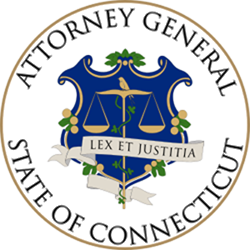Attorney General's Opinion
Attorney General, Richard Blumenthal
August 30, 2004
Honorable Darlene Dunbar, MSW
Department of Children and Families
505 Hudson Street
Hartford, CT 06106
Dear Commissioner Dunbar:
You have asked for an opinion interpreting Conn. Gen. Stat. § 17a-101i(a) regarding the Department's obligation to notify and provide records to an employing superintendent of schools when it has substantiated abuse of a child by certain school employees. Specifically, you are requesting a determination as to whether the applicable notification requirements apply to abuse of any child or only to abuse of a child who is a student in the employing school or school system.
Conn. Gen. Stat. § 17a-101i(a) states in relevant part: "Notwithstanding any provision of the general statutes to the contrary, after an investigation has been completed and the Commissioner of Children and Families, based upon the results of the investigation, has reasonable cause to believe that a child has been abused by a school employee who holds a certificate, permit or authorization issued by the State Board of Education, the Commissioner shall notify the employing superintendent of such finding and shall provide records, whether or not created by the department, concerning such investigation to the superintendent who shall suspend such school employee. Such suspension shall be with pay and shall not result in the diminution or termination of benefits to such employee….The suspension of a school employee employed in a position requiring a certificate shall remain in effect until the board of education acts pursuant to the provisions of section 10-151…."1.
We begin our analysis with the review of the provision itself. "The meaning of a statute shall, in the first instance, be ascertained from the text of the statute itself and its relationship to other statutes. If, after examining such text and considering such relationship, the meaning of such text is plain and unambiguous and does not yield absurd or unworkable results, extratextual evidence of the meaning of the statute shall not be considered." Public Acts 2003, No. 03-154, § 1.
The plain language of Conn. Gen. Stat. § 17a-101i(a) does not provide any support for limiting the obligation of the Department to report only cases involving children who are attending the same school or in the same school system that employs the alleged abuser. First, neither the term "child" nor the term "abused," as defined in the statutes, is so restrictive. Definitions applicable to this provision are found in Conn. Gen. Stat. § 17a-93, which provides that "child" means "any person under eighteen years of age…." and "abused" means "a child or youth (A) has been inflicted with physical injury or injuries other than by accidental means, or (B) has injuries that are at variance with the history given to them, or (C) is in a condition that is the result of maltreatment such as, but not limited to, malnutrition, sexual molestation or exploitation, deprivation of necessities, emotional maltreatment or cruel punishment." Thus, the statute itself, using these statutory definitions, does not limit the reporting obligation to abuse either occurring at school or involving students at the same school or in the same school system as the alleged abuser.
In construing statutes, "our fundamental objective is to ascertain and give effect to the apparent intent of the legislature…." Maxwell v. Freedom of Information Commission, 260 Conn. 143, 147-48 (2002). Conn. Gen. Stat. § 17a-101(a) articulates the public policy as it relates to child protection in the State of Connecticut as follows: "To protect children whose health and welfare may be adversely affected through injury and neglect; to strengthen the family and to make the home safe for children by enhancing the parental capacity for good child care; to provide a temporary or permanent nurturing and safe environment for children when necessary; and for these purposes to require the reporting of suspected child abuse, investigation of such reports by a social agency, and provision of services, where needed, to such child and family." The intent of the statutory scheme therefore is to provide a safe environment for children to the extent possible through the reporting and investigation of suspected child abuse, as well as the provision of services. This public policy is consistent with a statutory construction of Conn. Gen. Stat. §17a-101i(a) that requires DCF to notify the school superintendent whenever the agency substantiates abuse of any child, regardless of whether that child is a student in that school or school system, by an individual employed by that school system when that individual holds a certificate, permit or authorization issued by the State Board of Education.
A review of related statutes yields the same conclusion. We presume that the legislature intended statutory provisions to be read together to create a harmonious body of law. Collins v. Colonial Penn. Ins. Co., 257 Conn. 718, 742 (2001). "In ascertaining [legislative] intent, we deem the legislature to have intended to harmonize its enactment with existing common law and statutory requirements." Eskin v. Castiglia, 253 Conn. 516, 527 (2000), quoting Shortt v. New Milford Police Dept., 212 Conn. 294 , 301 (1989). In attempting to ascertain the intent of the legislature, we must construe statutory provisions in a manner that will avoid conflict between them. Stern v. Allied Van Lines, Inc., 246 Conn. 170, 179 (1998).
Disclosure of child abuse information by DCF is also controlled by Conn. Gen. Stat. § 17a-28. In general, information in DCF's records concerning child abuse is confidential under that provision and may not be disclosed unless specifically authorized by statute. However, Sec. 17a-28 does not preclude the reporting of child abuse to school superintendents where the report substantiates abuse by a licensed or certified school employee, because Conn. Gen. Stat. § 17a-101i(a) explicitly overrides "any provisions of the general statutes to the contrary."
Conn. Gen. Stat. § 17a-101i(a) references the education statutes and specifically Conn. Gen. Stat. § 10-151, which authorizes the termination of tenured teachers at any time for moral misconduct or other "due and sufficient cause." Similarly, the State Board of Education may "revoke any certificate, authorization or permit…[if] …the holder is professionally unfit to perform the duties for which the certificate, authorization or permit was granted, or the holder was convicted … of a crime involving moral turpitude or other good cause …." Conn. Gen. Stat. §10-145(m)(1). Conn. Gen. Stat. § 10-145i limits the issuance and reissuance of teaching certificates to certain applicants, including those convicted of a crime of child abuse or neglect as described in Conn. Gen. Stat. § 46b-120. The conviction of such crimes would presumably be contrary to the goal of setting a high standard of morals and integrity by the persons entrusted to teach the youth of Connecticut and therefore would be a factor to consider in determining whether they should be employed in education. Similarly, once a conviction of a person holding a teaching certificate is obtained for a crime involving an act of child abuse or neglect, Conn. Gen. Stat. § 17a-101i(c) requires the state's attorney to notify the superintendent of the school district and the Commissioner of Education of such conviction. It would therefore be consistent with the statutory scheme to suspend with pay a school employee against whom child abuse had been substantiated -- whether or not the child is a student in the alleged abuser's school or school system -- while further investigation and/or criminal process is pursued.
For the reasons stated above, we conclude that Conn. Gen. Stat. § 17a-101i(a) requires the Department to notify and provide records to an employing superintendent following the substantiation of abuse of any child by a licensed or certified school employee, whether or not the victim is a student in the employing school or school system.
Very truly yours,
RICHARD BLUMENTHAL
ATTORNEY GENERAL
RB/STP
1 The statute states: "…Within seventy-two hours after such suspension the superintendent shall notify the local or regional board of education and the Commissioner of Education, or the commissioner's representative, of the reasons for and conditions of the suspension. The superintendent shall disclose such records to the Commissioner of Education and the local or regional board of education or its attorney for purposes of review of employment status or the status of such employee's certificate, permit or authorization. The suspension of a school employee employed in a position requiring a certificate shall remain in effect until the board of education acts pursuant to the provisions of section 10-151. If the contract of employment of such certified school employee is terminated, the superintendent shall notify the Commissioner of Education, or the commissioner's representative, within seventy-two hours after such termination. Upon receipt of such notice from the superintendent, the Commissioner of Education may commence certification revocation proceedings pursuant to the provisions of subsection (m) of section 10-145b. Notwithstanding the provisions of sections 1-210 and 1-211, information received by the Commissioner of Education, or the commissioner's representative, pursuant to this section shall be confidential subject to regulations adopted by the State Board of Education under section 10-145."
Back to the 2004 Opinions Page
Back to the Opinions Page


